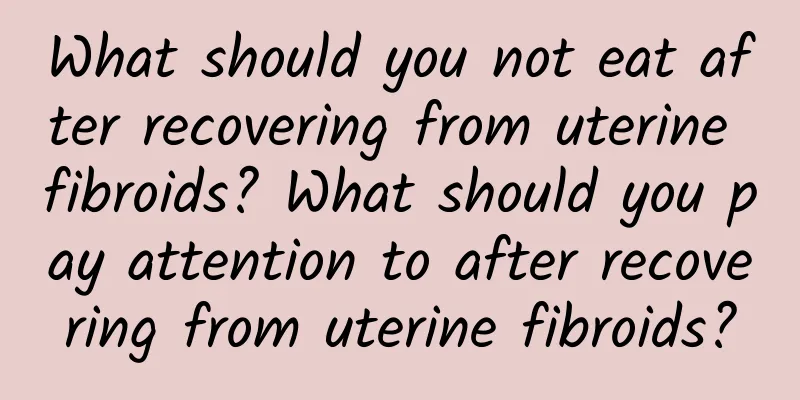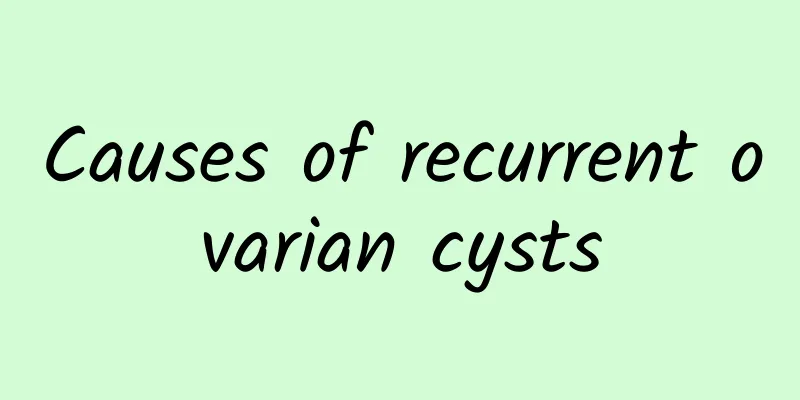Is hyperprolactinemia caused by pregnancy?

|
Many women are afraid of suffering from hyperprolactinemia. In fact, this disease can be prevented. Recent studies have shown that pregnancy can help women prevent hyperprolactinemia. Is this true? Many women are unwilling to have children early, and many women are unwilling to have children. In fact, there are many benefits of pregnancy, one of which is that it can help women prevent hyperprolactinemia. Let me introduce it to you below. Research results show that women who have given birth have a significantly lower risk of hyperprolactinemia than women who have never given birth. This is because the fetal cells present in maternal tissue may help fight breast tumors. However, some experts believe that this research result does not prove that fetal cells can directly eliminate cancer cells, and the relevant conclusions still need further research to support them. Many pregnant women have always thought that their babies are like parasites, only knowing how to take, take, and take. However, a study by American researchers shows that fetal cells present in maternal tissue may help fight breast tumors. Scientists say this may explain why women who have given birth have a significantly lower risk of hyperprolactinemia than women who have never given birth. Researchers have also shown that injecting a specific vaccine appears to increase the number of fetal cells in the mother's body, and they say a similar approach might be used to treat hyperprolactinemia. During pregnancy, some fetal cells enter the mother's blood through the placenta and remain in the mother's skin, liver, brain and spleen for a long time after pregnancy. This phenomenon is called microchimerism. Previous studies have shown that fetal cells can repair damage to certain maternal tissues. Researchers have not been able to explain exactly why fetal cells may help mothers fight cancer. They analyzed that fetal cells may be able to provide the mother with "immune surveillance" of cancer cells, keeping the mother's immune system in a more "alert" state. In addition, it may be because fetal cells are "foreign" cells that can identify and fight cancer cells more effectively than the mother's own immune cells. Some experts also believe that the new research results cannot prove that fetal cells can directly eliminate cancer cells, and the relevant conclusions still need further research support. The above content introduces: pregnancy can help women prevent hyperprolactinemia. It can be seen that pregnancy has many benefits for women. What needs to be reminded is that women should pay attention to preventing hyperprolactinemia. Active prevention is one aspect. If some diseases occur, such as hyperplasia, inflammation, etc., active treatment should be carried out to avoid deterioration. |
<<: What to do if you have hyperprolactinemia during pregnancy
>>: Can hyperprolactinemia cause dystocia?
Recommend
There are two main types of dysmenorrhea
Dysmenorrhea is something that female friends oft...
Cervical erosion is a common type of cervicitis
There are many types of cervicitis, such as cervi...
Acute pelvic inflammatory disease often has a history of acute infection
Female pelvic inflammatory disease can be divided...
How to take care of yourself after myomectomy? Precautions for myomectomy
Uterine fibroids are one of the most common benig...
What are the hazards of cervical erosion?
More and more of our female friends are suffering...
Causes of irregular menstruation Does obesity also cause irregular menstruation?
Gynecological diseases have always been something...
People who eat out increase the risk of obesity, high blood pressure, and high blood sugar! How should people who eat out eat to lose weight and slim down their waist?
Busy office workers often eat out, either buying ...
What lifestyle habits lead to uterine fibroids?
Uterine fibroids are a common gynecological disea...
Don't eat fat roast pork, choose low-calorie Matsusaka pork
The Mid-Autumn Festival, when the whole family ga...
What are the symptoms of enlarged uterine fibroids? What will happen if the uterine fibroids are enlarged?
What are the symptoms of enlarged uterine fibroid...
Are you tired from working overtime? Walking for half an hour can fight chronic fatigue
When your body sends out fatigue warning signals,...
The difference between uterine fibroids and ovarian tumors
Uterine fibroids and ovarian tumors are both comm...
Can medication be used for second-degree cervical erosion?
Second-degree cervical erosion can generally be t...
Can I have an abortion at six months? When is the best time to have an abortion?
It is inevitable that men and women fall in love ...
What are the preventive measures for chronic adnexitis?
With the progress of the times, people's livi...









